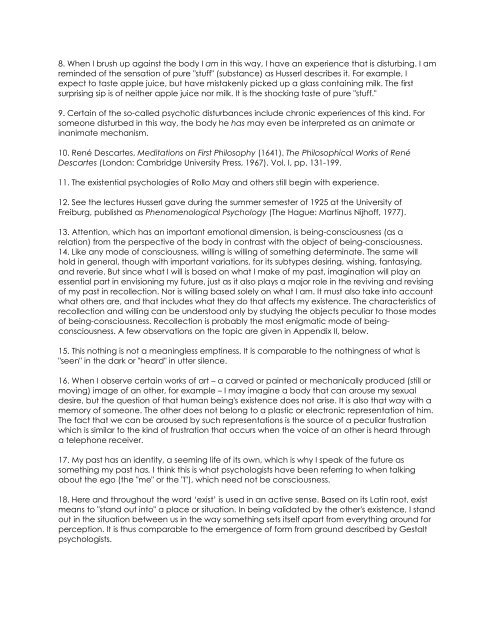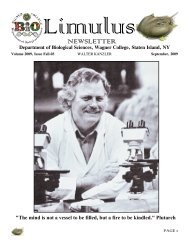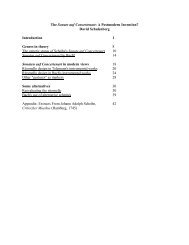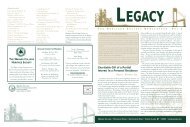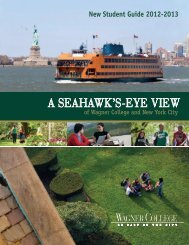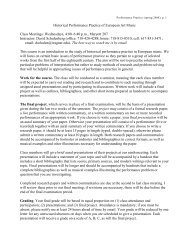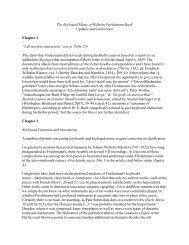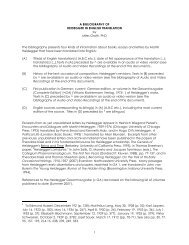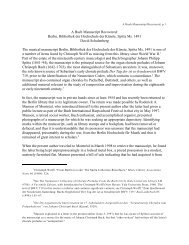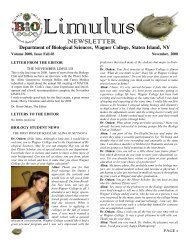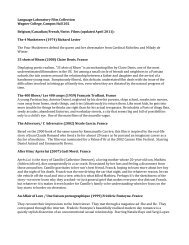SEVEN PAPERS ON EXISTENTIAL ANALYSIS ... - Wagner College
SEVEN PAPERS ON EXISTENTIAL ANALYSIS ... - Wagner College
SEVEN PAPERS ON EXISTENTIAL ANALYSIS ... - Wagner College
Create successful ePaper yourself
Turn your PDF publications into a flip-book with our unique Google optimized e-Paper software.
8. When I brush up against the body I am in this way, I have an experience that is disturbing. I am<br />
reminded of the sensation of pure "stuff" (substance) as Husserl describes it. For example, I<br />
expect to taste apple juice, but have mistakenly picked up a glass containing milk. The first<br />
surprising sip is of neither apple juice nor milk. It is the shocking taste of pure "stuff."<br />
9. Certain of the so-called psychotic disturbances include chronic experiences of this kind. For<br />
someone disturbed in this way, the body he has may even be interpreted as an animate or<br />
inanimate mechanism.<br />
10. René Descartes, Meditations on First Philosophy (1641). The Philosophical Works of René<br />
Descartes (London: Cambridge University Press, 1967), Vol. I, pp. 131-199.<br />
11. The existential psychologies of Rollo May and others still begin with experience.<br />
12. See the lectures Husserl gave during the summer semester of 1925 at the University of<br />
Freiburg, published as Phenomenological Psychology (The Hague: Martinus Nijhoff, 1977).<br />
13. Attention, which has an important emotional dimension, is being-consciousness (as a<br />
relation) from the perspective of the body in contrast with the object of being-consciousness.<br />
14. Like any mode of consciousness, willing is willing of something determinate. The same will<br />
hold in general, though with important variations, for its subtypes desiring, wishing, fantasying,<br />
and reverie. But since what I will is based on what I make of my past, imagination will play an<br />
essential part in envisioning my future, just as it also plays a major role in the reviving and revising<br />
of my past in recollection. Nor is willing based solely on what I am. It must also take into account<br />
what others are, and that includes what they do that affects my existence. The characteristics of<br />
recollection and willing can be understood only by studying the objects peculiar to those modes<br />
of being-consciousness. Recollection is probably the most enigmatic mode of beingconsciousness.<br />
A few observations on the topic are given in Appendix II, below.<br />
15. This nothing is not a meaningless emptiness. It is comparable to the nothingness of what is<br />
"seen" in the dark or "heard" in utter silence.<br />
16. When I observe certain works of art – a carved or painted or mechanically produced (still or<br />
moving) image of an other, for example – I may imagine a body that can arouse my sexual<br />
desire, but the question of that human being's existence does not arise. It is also that way with a<br />
memory of someone. The other does not belong to a plastic or electronic representation of him.<br />
The fact that we can be aroused by such representations is the source of a peculiar frustration<br />
which is similar to the kind of frustration that occurs when the voice of an other is heard through<br />
a telephone receiver.<br />
17. My past has an identity, a seeming life of its own, which is why I speak of the future as<br />
something my past has. I think this is what psychologists have been referring to when talking<br />
about the ego (the "me" or the "I"), which need not be consciousness.<br />
18. Here and throughout the word ‘exist’ is used in an active sense. Based on its Latin root, exist<br />
means to "stand out into" a place or situation. In being validated by the other's existence, I stand<br />
out in the situation between us in the way something sets itself apart from everything around for<br />
perception. It is thus comparable to the emergence of form from ground described by Gestalt<br />
psychologists.


